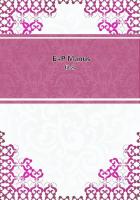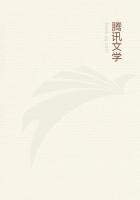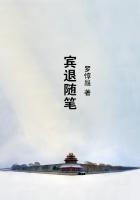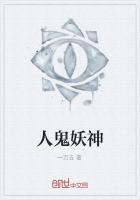In his headquarters at the Pont des Briques the Emperor worked as regularly as in his cabinet at the Tuileries. After his rides on horseback, his inspections, his visits, his reviews, he took his meals in haste, and retired into his cabinet, where he often worked most of the night, thus leading the same life as at Paris. In his horseback rides Roustan followed him everywhere, always taking with him a little silver flask of brandy for the use of his Majesty, who rarely asked for it.
The army of Boulogne was composed of about one hundred and fifty thousand infantry and ninety thousand cavalry, divided into four principal camps, the camp of the right wing, the camp of the left wing, the camp of Wimereux, and the camp of Ambleteuse.
His Majesty the Emperor had his headquarters at Pont de Briques; thus named, I was told, because the brick foundations of an old camp of Caesar's had been discovered there. The Pont de Briques, as I have said above, is about half a league from Boulogne; and the headquarters of his Majesty were established in the only house of the place which was then habitable, and guarded by a detachment of the cavalry of the Imperial Guard.
The four camps were on a very high cliff overlooking the sea, so situated that in fine weather the coast of England could be seen.
In the camp on the right they had established barracks for the Emperor, Admiral Bruix, Marshal Soult, and Decres, who was then minister of the navy.
The Emperor's barrack was constructed under the direction of Sordi, engineer, performing the functions of engineer-in-chief of military roads; and his nephew, Lecat de Rue, attached at that time to the staff of Marshal Soult as aide-de-camp, has been kind enough to furnish me with information which did not come within my province.
The Emperor's barrack was built of plank, like the booths of a country fair; with this difference, that the planks were neatly planed, and painted a grayish white. In form it was a long square, having at each end two pavilions of semicircular shape. A fence formed of wooden lattice inclosed this barrack, which was lighted on the outside by lamps placed four feet apart, and the windows were placed laterally. The pavilion next to the sea consisted of three rooms and a hall, the principal room, used as a council-chamber, being decorated with silver-
gray paper. On the ceiling were painted golden clouds, in the midst of which appeared, upon the blue vault of the sky, an eagle holding the lightning, and guided towards England by a star, the guardian star of the Emperor. In the middle of this chamber was a large oval table with a plain cover of green cloth; and before this table was placed only his Majesty's armchair, which could be taken to pieces, and was made of natural wood, unpainted, and covered with green morocco stuffed with hair, while upon the table was a boxwood writing-desk. This was the entire furniture of the council-chamber, in which his Majesty alone could be seated. The generals stood before him, and had during these councils, which sometimes lasted three or four hours, no other support than the handles of their sabers.
The council-chamber was entered from a hall. On the right of this hall was his Majesty's bedroom, which had a glass door, and was lighted by a window which looked out upon the camp of the right wing, while the sea could be seen on the left. In this room was the Emperor's iron bed, with a large curtain of plain green sarsenet fastened to the ceiling by a gilded copper ring; and upon this bed were two mattresses, one made of hair, two bolsters, one at the head, the other at the foot, no pillow, and two coverlets, one of white cotton, the other of green sarsenet, wadded and quilted; by the side of the bed two very ****** folding-seats, and at the window short curtains of green sarsenet.
This room was papered with rose-colored paper, stamped with a pattern in lace-work, with an Etruscan border.
Opposite the-bedroom was a similar chamber, in which was a peculiar kind of telescope which had cost twelve thousand francs. This instrument was about four feet long, and about a foot in diameter, and was mounted on a mahogany support, with three feet, the box in which it was kept being almost in the shape of a piano. In the same room, upon two stools, was a little square chest, which contained three complete suits and the linen which formed the campaign wardrobe of his Majesty. Above this was a single extra hat, lined with white satin, and much the worse for wear;
for the Emperor, as I shall say later in speaking of his personal peculiarities, having a very tender scalp, did not like new hats, and wore the same a long time.
The main body of the imperial barrack was divided into three rooms, a saloon, a vestibule, and a grand dining-room, which communicated with the kitchens by a passage parallel to that I have just mentioned. Outside the barrack, and connected with the kitchen, was a little shed, covered with thatch, which served as a washroom, and which was also used as a butler's pantry.
The barrack of Admiral Bruix was arranged like that of the Emperor, but on a smaller scale.
Near this barrack was the semaphore of the signals, a sort of marine telegraph by which the fleet was maneuvered. A little farther on was the Tour d'Ordre, with a powerful battery composed of six mortars, six howitzers, and twelve twenty-four pounders.
These six mortars, the largest that had ever been made, were six inches thick, used forty-five pounds of powder at a charge, and threw bombs fifteen hundred toises --[A toise is six feet, and a league is three miles]-- in the air, and a league and a half out to sea, each bomb thrown costing the state three hundred francs. To fire one of these fearful machines they used port-fires twelve feet long; and the cannoneer protected himself as best he could by bowing his head between his legs, and, not rising until after the shot was fired. The Emperor decided to fire the first bomb himself.














